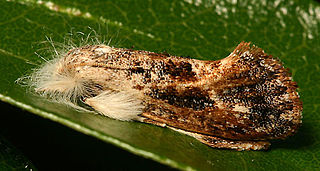
Classical elements typically refer to the concepts of earth, water, air, fire, and (later) aether, which were proposed to explain the nature and complexity of all matter in terms of simpler substances. Ancient cultures in Greece, Persia, Babylonia, Japan, Tibet, and India had all similar lists, sometimes referring in local languages to "air" as "wind" and the fifth element as "void". The Chinese Wu Xing system lists Wood, Fire, Earth, Metal, and Water, though these are described more as energies or transitions rather than as types of material.
Water is one of the elements in ancient Greek philosophy, in the Asian Indian system Panchamahabhuta, and in the Chinese cosmological and physiological system Wu Xing. In contemporary esoteric traditions, it is commonly associated with the qualities of emotion and intuition.

Empedocles was a Greek pre-Socratic philosopher and a native citizen of Akragas, a Greek city in Sicily. Empedocles' philosophy is best known for originating the cosmogonic theory of the four classical elements. He also proposed forces he called Love and Strife which would mix and separate the elements, respectively.

Porto Empedocle is a town and comune in Italy on the coast of the Strait of Sicily, administratively part of the province of Agrigento. It is the namesake of Empedocles, a Greek pre-Socratic philosopher and a citizen of the city of Agrigentum, in his day a Greek colony in Sicily. The primary industries of Porto Empedocle are agriculture, fishing, ironworking, pharmaceuticals and rock salt refining.

Hermarchus or Hermarch, sometimes incorrectly written Hermachus, was an Epicurean philosopher. He was the disciple and successor of Epicurus as head of the school. None of his writings survive. He wrote works directed against Plato, Aristotle, and Empedocles. A fragment from his Against Empedocles, preserved by Porphyry, discusses the need for law in society. His views on the nature of the gods are quoted by Philodemus.
The Pluralist school was a school of pre-Socratic philosophers who attempted to reconcile Parmenides' rejection of change with the apparently changing world of sense experience. The school consisted of Anaxagoras, Archelaus, and Empedocles. It can also be said to have included the Atomists, Leucippus and Democritus. The Pluralists rejected the idea that the diversity of nature can be reduced to a single principle (monism). Anaxagoras posited that nature contained an innumerable number of principles, while Empedocles reduced nature to four elements which could not be reduced to one another and which would be sufficient to explain change and diversity.

Acrolophus is a genus of moths in the family Acrolophidae, with, typically, great individual variation within species in color pattern, making field identification of many individuals difficult or impossible. It was described by Felipe Poey in 1832.

Acrolophus popeanella is a moth of the family Acrolophidae. It is found in the eastern United States, from New Jersey and Ohio south to Florida and west to Illinois, Nebraska and Texas.
Acrolophus fervidus is a moth of the family Acrolophidae described by August Busck in 1912. It is found in Costa Rica, Mexico and Texas.

Acrolophus arcanella is a moth of the family Acrolophidae. It is found in eastern North America.

The grass tubeworm or Texas grass tubeworm moth is a moth of the family Acrolophidae. It is found from Maryland to Florida and to Texas.
Acrolophus macrogaster is a moth of the family Acrolophidae. It is found in North America, including Arizona.
Walsingham's grass tubeworm moth is a moth of the family Acrolophidae. It is found in North America, including Alabama, Florida, Georgia, Illinois, Louisiana, Maryland, Mississippi, New York, Ohio, South Carolina, Tennessee, Virginia and West Virginia.
Acrolophus cockerelli is a moth of the family Acrolophidae. It is found in North America, including Arizona, Nevada, New Mexico, Oklahoma, Oregon and Texas.
Acrolophus echinon is a moth of the family Acrolophidae. It is found in Mexico.
Acrolophus mimasalis is a moth of the family Acrolophidae. It is found in the West Indies.
Acrolophus maculata is a moth of the family Acrolophidae. It is found in Brazil.
Acrolophus sinclairi is a moth of the family Acrolophidae. It is found in North America, including California, New Mexico and Texas.
Acrolophus numidia is a moth of the family Acrolophidae first described by Herbert Druce in 1901. It is found in Mexico.
Acrolophus walsinghami is a moth of the family Acrolophidae. It is found in Puerto Rico.







